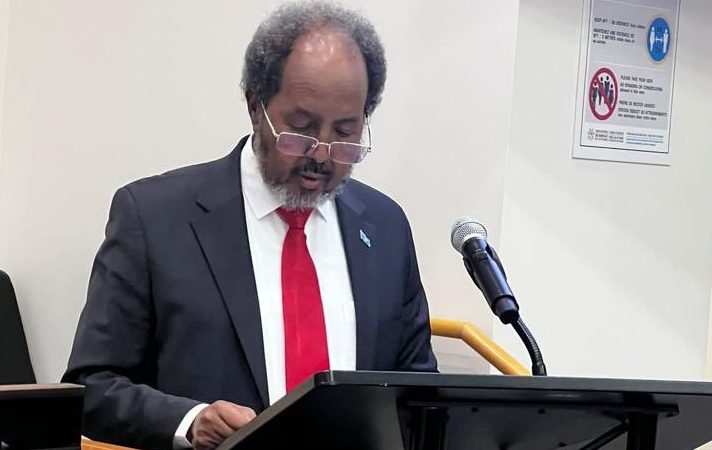
Mogadishu, SOMALIA – The Somalia Security Conference, convened at the United Nations, represents a major milestone in Somalia’s pursuit of enhanced security, military reconstruction, and overall stability. This pivotal gathering, led by Mr. Hassan Sheikh Mohamud, President of the Federal Republic of Somalia, brings together representatives from 26 countries, along with key international organizations such as the United Nations, the Arab League, the European Union, and the African Union, in New York City. This conference embodies a significant collective effort towards shaping a more secure and stable future for Somalia.
Conference Overview and Key Agendas
The conference aims to address several crucial topics that are pivotal for Somalia’s future. First on the agenda is assessing the progress and challenges in Somalia’s security sector. Participants will review achievements to date and pinpoint areas needing more attention and improvement. This assessment is critical in shaping effective strategies for further development in this sector.
Another key focus is the Somalia Security Development Plan, a comprehensive approach to enhancing the capacity of Somali security forces and strengthening national institutions. This plan is vital for ensuring a smooth transition of security responsibilities to the Somali Armed Forces, promoting stability, and fostering sustainable development throughout the country.
Furthermore, the conference will deliberate on bolstering international support for Somalia’s security and development. This involves exploring collaboration strategies with various global organizations and partners to address the multifaceted challenges Somalia faces.
Recent Developments and Their Implications
The timing of the Somalia Security Conference coincides with significant positive developments for the nation. Notably, the lifting of the arms embargo earlier this month marks a turning point, allowing Somalia to acquire essential military equipment to enhance its security forces. Additionally, the anticipated debt relief is a welcome development, set to provide substantial economic support and alleviate financial constraints.
Interestingly, the Liberation Operations, which have been stagnant in Phase 1 for over 18 months and suffered setbacks in August, might not be a central topic at the conference. However, this issue likely weighs on the minds of attendees, considering its importance in Somalia’s overall security landscape.
Somalia’s Funding Request and Future Outlook
The Somali government is poised to request over $200 million in immediate assistance for the Somali National Army (SNA). Government officials, in discussions with The Somali Digest, have indicated that the country’s budget should sufficiently support the security sector by 2027/28. This request underscores the critical need for immediate financial aid to bolster Somalia’s security forces in the short term while paving the way for long-term self-reliance.
The Conference’s Impact on Somalia and International Relations
The Somalia Security Conference is more than a mere gathering; it is a testament to Somalia’s commitment to rebuilding and stabilizing the nation. The presence of diverse international players at the conference highlights the global interest in Somalia’s stability and the recognition of its strategic importance.
The deliberations on the Security Development Plan are particularly crucial. This plan is not just about military strength but also about instituting robust governance structures, enhancing institutional capacity, and fostering a culture of law and order. The success of this plan is integral to Somalia’s transition to a peaceful, stable, and self-reliant nation.
The lifting of the arms embargo and the anticipated debt relief are developments that create a conducive environment for the implementation of the security plan. These steps will enable Somalia to equip its forces adequately and ensure financial stability, which are essential for sustained security efforts.
Moreover, the conference serves as a platform for Somalia to articulate its vision and needs to the international community. The requested $200 million in aid is a significant figure, but it reflects the scale of Somalia’s ambitions and the extent of its needs. The assurance that Somalia’s budget can sustain its security sector by 2027/28 provides a roadmap for international partners on how their support can catalyze Somalia’s journey towards self-sufficiency.
In conclusion, the Somalia Security Conference stands as a pivotal moment in Somalia’s history. It is a convergence of national ambition and international collaboration, a forum where Somalia can redefine its narrative from one of conflict to one of recovery and growth. The outcomes of this conference and the implementation of its resolutions will be critical in determining Somalia’s trajectory in the coming years.
________________________________________________________________
Xafiiska Wararka Qaranimo Online | Mogadishu, Somalia
_____________________________________________________________________________________Xafiiska Wararka Qaranimo Online | Mogadishu, Somalia
_____________________________________________________________________________________Advertisement
_____________________________________________________________________________________







